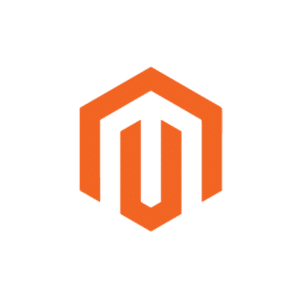When it comes to eCommerce, there are countless factors to consider but one of the most important is which platform will be best for your business. In order to have a successful business, you need to make sure you have the right B2B eCommerce platform.
Last year, global B2B eCommerce grew by almost 20% which represented over $10.3 trillion dollars in sales. That means there is a ton of potential for your business but also a ton of competition. You want to stick out to your B2B customers, but how do you do that? What platform gives you the best chance for eCommerce personalization?
But there are plenty of options out there when it comes to choosing the ideal platform, where do you even start? How can you make sure that you’re choosing the best path for your business? Switching platforms is both costly and difficult so when you make your decision, you’re going to want to stick with it.
Let’s run through some of the platforms that you should be checking out, as well as their pros and cons.
Magento
We’ve talked about how Magento can help grow your eCommerce business and it makes our list without even a second thought.
Magento is a fantastic open-source B2B eCommerce platform and can work for almost any kind of business out there. We love Magento because in the topsy-turvy world of eCommerce, it provides a sense of customization and easy startup that puts users at ease.
There are some great features, like a flexible shopping cart system, total control over your website’s look, and functional selling options.
Plus, Magento was designed with businesses in mind. While there is plenty of overlap in the Venn diagram of B2B and B2C, Magento’s features were definitely designed to handle a business’s needs. That is also one of its downsides, however.
In order to make proper use of Magento, you need to have an experienced coder with you and the bandwidth to be able to take advantage of all the features.
Pros and Cons
Pros:
- Incredibly flexible, unique options
- Made for businesses
- Scalable for big and small businesses alike
Cons:
- Needs experienced developers to take full advantage
- A dedicated server is needed to properly host
- Is a bit more expensive than others
Shopify
It’s almost impossible to talk about eCommerce without mentioning Shopify. In fact, the snowboard store turned eCommerce giant has recently teamed up with Walmart in order to go toe-to-toe with Amazon.
If you’ve got a small business, you might be thinking you’re not a big enough fish for the likes of Shopify. Many people consider using Shopify for their eCommerce platform like people use WordPress for their blogging platform.
So what makes Shopify so great?
For one, it’s quite user-friendly and doesn’t require a lot of knowledge to set up. It’s got a low start-up cost and the interface won’t have you frustrated. There are also plenty of free themes you can take advantage of to give your site the best look possible.
Shopify development simplicity is also one of its shortcomings. In making a user-friendly platform, you won’t find the extensive customization you might find with other platforms. Its content marketing features are also noticeably weak.
Pros and Cons
Pros:
- Simple to use
- Affordable pricing
- Plenty of free plugins, themes, and apps to improve your website
Cons:
- Customization can be limited and cumbersome at times
- Basic content marketing
- Lacks multi-language capabilities
WooCommerce
If you’re a WordPress fan and comfortable with that platform, then WooCommerce might be the right call for you. WordPress already powers around 30% of the entire internet (including us here at Atiba!) and is also responsible for about 40% of eCommerce sites around the world. So, if you’ve got WordPress experience, then you’ll be quite happy with what WooCommerce has to offer.
Even if you don’t have WordPress experience, WordPress developers can help take your site to the next level.
What makes WooCommerce as a solid B2B eCommerce platform?
When it comes to the list of pros, it shares a lot of similarities with what WordPress is already doing well. It is incredibly easy to use, launch, and there are countless themes and plugins to check out. There are also tons of performance and SEO tools that come built-in so you can make sure your eCommerce site is ready for the World Wide Web.
Plus, as your business grows and evolves it’s quite easy to expand your site as well. It’s quite scalable.
Pros and Cons
Pros:
- Seamless integration with WordPress
- 100’s of themes, plugins, and add-ons
- SEO and performance tools
Cons:
- The number of plugins can be overwhelming
- Developer knowledge is needed to take full advantage
- Limited customer support despite large community
Oracle NetSuite
Oracle isn’t a name that jumps at you when it comes to other B2B eCommerce platforms, but that doesn’t mean it isn’t worth a look.
This cloud-based platform is ideal for businesses that have a storefront and various online stores. The multichannel capabilities are perfect for those looking to sell across different avenues and make the most of their business opportunities. It also has multi-country support if your business spans the globe.
NetSuite can be fully integrated with ERP and CRM technologies, making it easy to sync with other tools in order to save you both time and money when it comes to launching your site.
Unfortunately, NetSuite does have a steep learning curve when it comes to the initial stages. You will need an experienced developer or consultant to get you moving down the right track.
Pros and Cons
Pros:
- Global support for businesses that operate around the world
- Multi-channel selling
- Seamless integration with other technologies
Cons:
- Steady price increases over the last few years
- Limited support for some customers
- Limited customization options
OpenCart
Last on our list is another popular platform for the eCommerce world. OpenCart is a free and open-source software that comes with a number of powerful and useful tools to make the most of your online presence. OpenCart has been around for a while and they continue to make strides, most notably with their extension “OpenCart B2B marketplace”. This extension has made it much easier for B2B users.
OpenCart is also a multi-channel marketplace that will allow your business to access services across the web for easy and optimal wholesale selling. The platform is easy to update, extremely user-friendly, and will help you set up a basic store even if you have little to no experience.
Of course, in order to take full advantage of the platform and all its features you’ll have to bring in an experienced developer or coder to help maximize your site’s opportunities. When it comes to payment and checkout, OpenCart has shown to be a bit limited as well.
Pros and Cons
Pros:
- Easy to set up and use, ideal for beginners
- Simple metrics and reporting documents
- Built-in email templates make marketing easy
Cons:
- While not universal, is known to be a bit buggy
- Noticeably slower checkout process
- Limited long-term features
What’s the best B2B eCommerce Platform For You?
As with just about anything in the tech world, the answer is often those two frustrating words “it depends.”
It really does depend on the size of your business, the global scope, and how much control you want over your website. In order to determine which is the best for you, we recommend writing down a list of things that matter most to you for your eCommerce platform.
Your list should include things like:
- Speed
- Customization
- Security
- Setup ease
- Support
- Price
- Features
- And more
While we can’t put those in order for you, we can make a recommendation on our favorites. It’s no secret that we are big WordPress fans and as a part of that, big WooCommerce fans. We believe its functionality and ease make it a great option for eCommerce businesses.
If you’d rather not go the WordPress route, we suggest taking a look at Magento. It’s perfect for both big and small businesses and can go with your business if it continues to grow.
So if you’re looking to start your eCommerce website or just need help, reach out to our eCommerce team to help you get set up with all the tools you need. We look forward to helping you!





